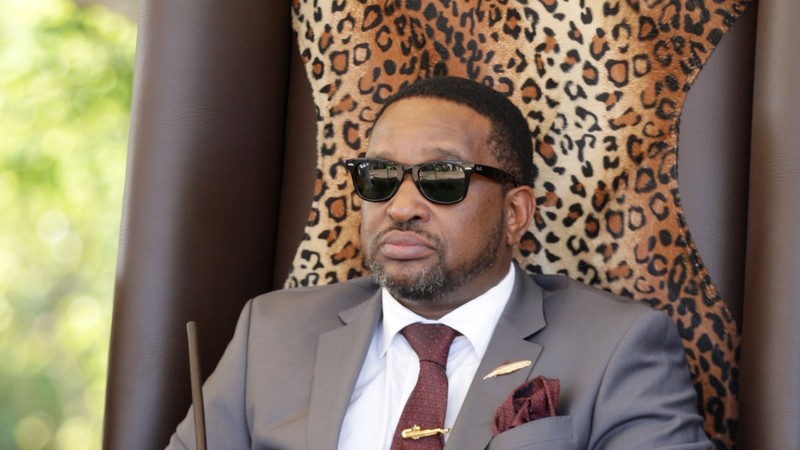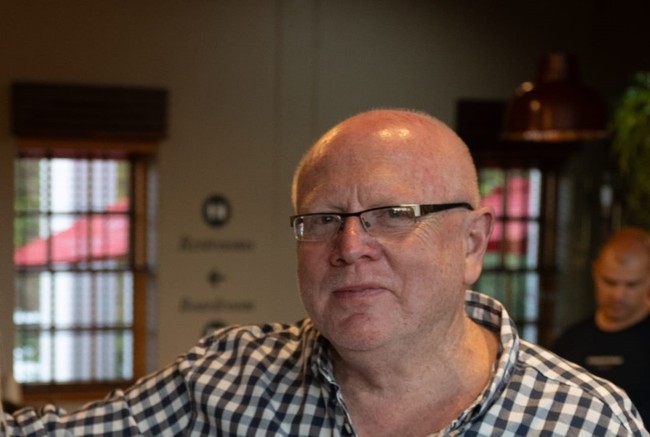
Ingonyama Trust: Is the Zulu king’s demand justified?
ADRIAAN VAN DER MERWE
Over the past few weeks, it has been reported in the media that Zulu King Misuzulu’s demand that the government places the Ingonyama Trust under his full control is “against the principles of democracy in South Africa”.
However, notwithstanding, it would appear as if the king’s demand is consistent with the KwaZulu-Natal Ingonyama Trust Act No. 3KZ of 1994, as read with Section 13 of the KwaZulu Amakhosi and Iziphakanyiswa Act, 1990.
It is the Zulu king’s right to manage the affairs of his people and the Zulu king’s sovereign hereditary right to manage the land of the Zulus.
The Zulu king, not the Trust Board, is accountable to the Zulu people for the way that the land of the Zulu people is managed.
Section 13 of the KwaZulu amakhosi and iziphakanyiswa Act No. 9 OF 1990, stipulates that: “The inkosi of the Usuthu Tribe is the paramount inkosi of the Zulus and is also known as the King of the Zulus, the Ingonyama or Isilo.”
The name “Ingonyama Trust” means “The Zulu King Trust” and not the “Zulu Trust Board”.
The name “Trust Board” in Section 2A of the Ingonyama Trust Act therefore needs to be reconstituted to refer to the Trust Administration, whose sole function will be to execute the decisions of the Zulu King, as provided for under the Ingonyama Trust Act.
It has always been said that tribalism in South Africa stands in the way of the full democratisation of our country. Really? It long preceded the establishment of our so-called democracy.
By virtue of a resolution that had been adopted by the UN General Assembly on September 13, 2007, the UN Declaration on the Rights of Indigenous Peoples reads: “Indigenous peoples have the right to maintain and develop their political, economic and social systems or institutions, to be secure in the enjoyment of their own means of subsistence and development, and to engage freely in all their traditional and other economic activities.”
It would appear that the tribal chiefs have always been regarded as a “problem” to the South African government, with the view of trying to sideline them into insignificance, as they have always been viewed as standing in the government’s way of democratising the country.
The tribe and tribal law have been in existence for as long as man has been on Earth, whereas Western-style democracy is a fairly recent invention of the Greeks, which means that tribal law has stood the test of time, whereas our democratic institutions are in their infancy and there are signs that they are spluttering massively.
Section 2A(2) of the Ingonyama Trust Act is inconsistent with the Zulu Customary Law.
While the act restricts the Zulu king’s power about how he may deal with the land, namely that he may deal with the land only in keeping with indigenous law, Section 2A of the Ingonyama Trust Act, grants sweeping powers to the Trust Board which exceed that of the king, namely to be able to lease or sell tribal land.
In other words, while the Ingonyama Trust Act sets clear parameters about what the Zulu king may or may not do with the land, Section 2A(2) of the act grants the Trust Board sweeping powers to wheel and deal with tribal land as it pleases.
It is to be noted that it is illegal for any tribe to be leasing or alienating communal tribal land.
What the Zulu king wants is for the act to be amended to place all the trust’s land under his full control, which essentially means the scrapping of Section 2A.
This is consistent with the concept of a Crown Estate, as we have seen in the UK, which is a collection of the lands and holdings belonging to the British Monarch as a “corporation sole”, making it “the sovereign’s public estate”, which is neither government property nor part of the monarch’s private estate.
“White law” does not and cannot apply to the “black lands”, as the tribal lands are subject only to Zulu Customary Law and the Zulu king is the sole appointed governmental authority over the tribal lands of the Zulus, which renders all municipal structures and the office of any elected official redundant, as this may be deemed to be in conflict with the office and functions of the king.
The Zulu Kingdom is ruled by the Zulu king, a kingdom established under ancient tribal convention, which originates from the Garden of Eden, with the kingship being established as a hereditary function, way before the white man began to impose laws upon the tribal people of South Africa.
But now we have what is essentially a “black government” imposing “white law” upon the Zulu Kingdom, under the Municipal Systems and Municipal Structures Acts, whereby municipal functionaries are appointed to perform municipal functions within an area where no rates can be levied, because the Zulu land is a private estate and its inhabitants are not ratepayers.
The reason why the Zulu people who live on the king’s trust land are not ratepayers is because no municipal rates can be levied in respect of tribal land.
This then has resulted in ward and provincial councillors and the state representatives being appointed and granted competing powers, whereby the power of the Zulu king has become diluted and potentially challenged, with the view of possibly extinguishing the Zulu Monarchy.
Zulu land is one property, a single private estate, which is owned by a single legal entity, namely the Ingonyama Trust and yet the Zululand District Municipality, which renders municipal services to the king’s lands, is divided into five local municipalities, which is then further divided into voter wards.
Ulundi and Nongoma municipalities consist almost entirely of traditional areas, with scattered settlements and villages. The uPhongolo and eDumbe municipalities house several traditional councils.
The Nongoma municipal area includes vast tracts of land registered in the name of the Ingonyama Trust and falling under the jurisdiction of Traditional Councils. About 99% of the land is owned by Ingonyama Trust Board and 99% of the land is under traditional councils.
What makes the matter even more interesting is that the Zululand District Council consists of 36 councillors, 40% of which are proportionally elected and 60% elected to the district municipality from respective local municipalities.
All this is on land that is predominantly owned by a single legal entity, namely the Ingonyama Trust.
You cannot have multiple levels of administration or governance applying to a single cadastral entity, which is owned or held in trust by only one landowner, namely the Zulu king.
In fact, the state is under no obligation to render any municipal services to any land owned by the Ingonyama Trust.
The fact is that there are no ratepayers on the Ingonyama Trust land, which essentially makes Zululand a private estate, which means that all the land owned by the Ingonyama Trust can constitute only a single ward at most for voting purposes.
This means that the elected municipal official for Ingonyama Trust land will wield the same power as the Trust Board and the Zulu king himself, if not more because they have been democratically elected.
See where am I going with this? You cannot merge tribal law and white law’and call it democracy. If the Zulus and the other tribes carry on like this, we are one step closer to the tribal chiefs being marginalised, in preparation for the nationalisation of all black tribal land and the white farms for the purpose of collective farming.
You cannot establish a municipality within the boundaries of a private estate, which means that all the municipalities that had been established on the land of the Ingonyama Trust, must immediately vacate the king’s lands.
The local municipalities in question have no locus standi in being present of the king’s Lands.

Adriaan van der Merwe is a chief property administrator with more than 40 years’ experience in the property industry, specialising in zoning matters. He is also a strong supporter of the Zulu king and the monarchy. Picture: Supplied
Adriaan van der Merwe is a chief property administrator with more than 40 years of experience in the property industry, specialising in zoning matters. He is also a strong supporter of the Zulu king and the monarchy.
Daily News
News Related-
Antoine Dupont still hurt by 'injustice' of World Cup loss to Springboks
-
China's New Aircraft Carrier Begins Catapult Testing
-
Aircraft Downed Inside Russia By Patriot System: Ukrainian Air Force
-
“Am I Prog’s Taylor Swift? That’s a debate that could run and run”: why Peter Hammill re-recorded his Enigma-era albums
-
Car With Pro-Russian Fighters Blown Up by Resistance: Exiled Mayor
-
Europe and African nations must find effective common ground in dealing with migration influx
-
Springbok lock opts not to renew contract with URC team
-
Pravin Gordhan’s deathly legacy: A threat to SA’s economic future
-
Antoine Dupont STILL hurt by ‘injustice’ of Rugby World Cup loss to Springboks
-
Rubber stamping NHI Bill will have damaging consequences for SA for generations
-
Inside horrific conditions Hamas hostages suffered including losing 15lbs in 50 days
-
After the Bell: SA’s NHI healthcare disaster starts right here
-
Gupta-linked development land for sale
-
Gary Neville begrudgingly claims brilliant Man Utd midfielder ‘looked like a Man City player’ in Everton mauling
